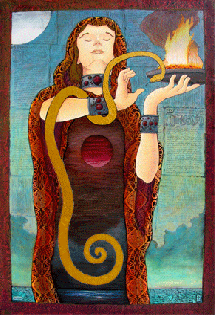Philosophy & Counseling In-Depth
Overview
I take a holistic approach that incorporates mind, body, and spirit. I believe it’s important to integrate life meaning into counseling. I respect all faith backgrounds (including none), and work within personal belief frameworks. I view therapy as a collaboration. I emphasize unconditional positive regard, respect, a safe and caring therapeutic relationship, individual strengths, and taking control over choices.
I listen and adjust methods to meet your needs. I utilize a variety of techniques, including cognitive behavioral, existential, psychodynamic, and homework assignments as agreed upon. I utilize meditative/mindfulness approaches for awareness and relaxation.
Counseling Model Presentation (ppt)
What Makes a Person Hurt?
Spirituality & Existential Considerations: The existential anxieties (hopelessness, meaninglessness, isolation, and death) underlie all and give rise to defenses and broken behaviors. Various psychological theories will, in any individual instance, explain a person’s issue — but the basic existential considerations are at root. In a very similar vein, spirituality can be considered critical to mental health. Some of the components of spiritual wellness may include concept of the Divine, sense of meaning, connectedness, spiritual freedom, knowledge and learning, mystery, hope & forgiveness (or grace), present-centeredness, and rituals. Clients often need to identify the components of spirituality meaningful to them.
Cognition: There are usually incorrect (i.e., not useful) thoughts in need of rooting out and replacement with correct (functional) thoughts. People take such incorrect thoughts (“I should always be niceâ€) and hammer themselves until they feel bad. Awareness and replacement of such thoughts with healthier alternatives (“I will be nice when I’m not being taken advantage of†or “It’s not reasonable to think I’ll always be niceâ€) lead to less emotional stress and healthier functioning.
Emotion: Fixing the thinking is not good enough. The emotions and unconscious portions of the mind must believe the cognitive corrections. The emotions must change.
Integration: There are many subcategories in a person. These can be divided loosely into conscious and unconscious (Freudian & others), subpersonalities (Gestalt), archetypal images (Jungian), etc. The key regardless of theory is to bring the disparate parts into harmony and integration. I work to help clients bring to awareness parts of themselves and integrate the various strengths, weaknesses, and contradictions into a coherent whole.
Chemistry & Genetics: Some mental illnesses are triggered by biological factors. These often respond to a combination of medication and counseling interventions.
How Do I Help People?
Some consideration of either existential or spiritual concerns should be addressed whenever possible. These may be specifically related to religion, or far more general such as meaning in life and connection to other living beings.
While I am eclectic in approach, I almost always utilize the following approaches eventually in any client’s treatment:
- Cognitive Behavioral Approaches.
- Spiritual or Existential Assessment and Discussion.
- Gestalt Techniques.
- Multiple Senses and Non-Talk Techniques. I like to utilize card sorts, drawings, journals, and homework assignments. Some people open up better to pictorial images or while engaged in an activity and not talking directly to the therapist.



